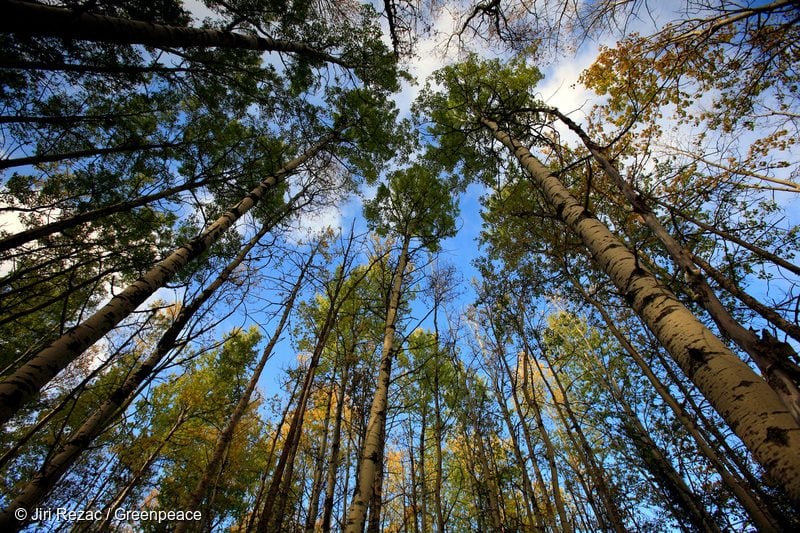Forests around the world—including large swaths of intact forests—are some of the most beautiful places on earth. They are home to iconic wildlife and Indigenous Peoples that rely on the forest for their livelihoods and cultures.
But forests are also some of the most important places on Earth for you, me and the health of everyone around us.
3 Ways Forests Protect Our Health
Forests have remarkable health benefits, beginning with air quality. Urban forests clean the air in our cities, including the pollution emitted from factories, power plants and cars. This is the same air pollution that contributes to and exacerbates childhood asthma and other respiratory conditions. Large forests also function as the lungs of our planet, providing a reliable source of oxygen.
Forests are also vital to the global supply of clean water. Plant life and soil in forests absorb and filter much of the water that makes its way into our groundwater and streams (and ultimately into rivers and lakes).
Finally, forests are an important piece of the climate change puzzle. They absorb climate change-inducing carbon dioxide and emit oxygen for us to breathe. Trees and soil also store incredible amounts of carbon. When forest destruction occurs, we lose forests as carbon sinks, as much of the carbon that was locked away is released into our atmosphere to further fuel climate change.
And climate change has a range of well-documented consequences for our health. Extreme weather, heat-related illnesses and changes to the range of mosquitos (and thus changes to vector-borne illnesses like malaria and dengue fever) are all associated with our warming world. Climate change will also increase the risk of catastrophic forest fires and the destruction and climate pollution they cause.
Threats to Canada’s Boreal Forest Mean Threats to Our Health
Unfortunately, the health of forests around the world—and with them the health of billions of people—is in jeopardy.
The Canadian Boreal forest, for example, is one of the largest reservoirs of carbon in the world and the largest intact ancient forest in all of North America. But it is under threat from unsustainable logging. One company in particular, Resolute Forest Products, is threatening the future of the Boreal forest and the wildlife that rely on it to thrive. And companies right here in the U.S. are buying millions of tons of paper indiscriminately, without strong sustainability requirements, which only makes a bad situation worse.
Rite Aid is one of those companies. It is sourcing millions of pounds of paper for its weekly throwaway flyers and marketing materials, and does not seem to care whether or not it risks the health of the forest and all of us who depend on it for our health.
And here’s the real irony: Rite Aid claims a strong “commitment to wellness,” and includes improving the “health and wellness of [its] communities” among its vision and core values. That does not sound like a company that should be contributing to forest destruction. To fulfil this ‘commitment,’ Rite Aid needs to take a closer look at its impact on forests before the damage gets worse.
We know that it is possible to manage forests, like the Boreal, to produce paper and wood sustainably. More and more companies are demanding this. We are asking Rite Aid to start being part of the solution and adopt a sustainable paper policy that will ensure it only sources paper from truly sustainable forestry operations.
Tell Rite Aid to protect forests and public health by adopting a paper policy today.



